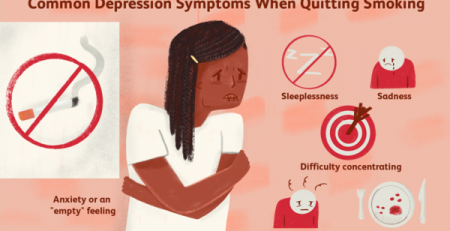Vaping ‘linked to cancer and damages body like smoking’
Scientists said a landmark study showed that e-cigarettes ‘might not be as harmless as originally thought’
Eleanor Hayward, Health Editor |
Chris Smyth, Whitehall Editor
Tuesday March 19 2024, 11.30pm GMT, The Times
People who vape suffer similar changes to their DNA as smokers who develop cancer, researchers have revealed.
Scientists at University College London analysed samples of cheek cells from vape users and compared these with those from cigarette smokers. Both groups had similar changes to the DNA of cells in their mouth.
These changes were, in turn, linked to the future development of lung cancer in smokers.
• Health minister begs husband to stop vaping during live interview
The authors of the study, published in the journal Cancer Research, said the findings did not prove e-cigarettes cause cancer but show that “the devices might not be as harmless as originally thought”.
It is the first major study to draw a link between e-cigarettes and an increased risk of cancer.
Dr Chris van Tulleken on the dangers of vaping
Little is known about the long-term effects of e-cigarettes, and debates over their harm have so far mainly focused on concerns about nicotine addiction among the young. On Wednesday MPs will be presented with world-leading legislation restricting the flavours and promotions of vapes, as well as banning smoking for younger generations altogether.
Rishi Sunak said that the bill would “save thousands of lives and billions of pounds for our NHS” and that he was confident of staving off a party rebellion. Some MPs on the Tory right, led by Liz Truss, have criticised the smoking ban for those born after January 1, 2009, as curtailing individual freedom, but all of the UK’s present and former chief medical officers, including Professor Sir Chris Whitty, have taken issue with this argument.
Little is known about long-term side effects of vaping, which is a relatively new phenomenon
TIMES PHOTOGRAPHER RICHARD POHLE
Writing for The Times, they said: “To be pro-individual choice should mean being against the deliberate addiction of children, young people and young adults to something that will harm them, potentially fatally.”
They urged MPs to back the legislation to help end the “flagrant marketing of vapes to children using colours, flavours and packaging”. They added: “Vapes can help smokers quit. But if you don’t smoke, our advice is don’t vape.”
A recent investigation by The Times revealed how the promotion of e-cigarettes by the government and NHS as a tool to stop smoking led to an epidemic of youth vaping, as organisations linked to the tobacco industry played down e-cigarettes’ health risks.
Because vaping is relatively new, little is known about long-term side effects. UCL’s study is the first to examine how smoking and vaping can modify the DNA in cells, in a process known as epigenetics. These changes are thought to allow cells to divide more quickly, potentially growing into tumours.
The study involved data from 4,000 people, and looked at cell samples from hundreds of smokers, as well as vapers who don’t regularly use tobacco. This showed that cells in the mouth, which are exposed to tobacco and vape smoke, were “substantially” altered. The changes were also seen in the lung cancer tissue of smokers who developed cancer.
The study’s author, Dr Chiara Herzog, said: “While the scientific consensus is that e-cigarettes are safer than smoking tobacco, we cannot assume they are completely safe to use and it is important to explore their potential long-term risks and links to cancer. We hope this study may help form part of a wider discussion into e-cigarette usage, especially in people who have never previously smoked tobacco.”
Her co-author, Professor Martin Widschwendter, said: “Changes that are observed in lung cancer tissue can also be measured in cheek cells from smokers who have not [yet] developed a cancer. Importantly, our research points to the fact that e-cigarette users exhibit the same changes, and these devices might not be as harmless as originally thought. Long-term studies of e-cigarettes are needed.”
The study examined the effects on cells by studying a type of epigenetic change in cells called DNA methylation. Epigenetics is the term for factors, such as our environment and lifestyle, that can modify and determine how our DNA is expressed, such as by suppressing genes that stop cells dividing into tumours.
Dr Ian Walker, executive director of policy at Cancer Research UK, said: “This study contributes to our understanding of e-cigarettes, but it does not show that e-cigarettes cause cancer.
“Decades of research has proven the link between smoking and cancer, and studies have so far shown that e-cigarettes are far less harmful than smoking and can help people quit.
“This paper does, however, highlight that e-cigarettes are not risk-free, and so we need additional studies to uncover their potential longer-term impacts on human health.
“Smoking tobacco causes 150 cases of cancer every single day in the UK, which is why we look forward to seeing the government’s age of sale legislation being presented in parliament. Nothing would have a bigger impact on reducing the number of preventable deaths in the UK than ending smoking, and this policy will take us one step closer to a smoke-free future.”
Andrew Beggs, a professor of cancer genetics and surgery at the University of Birmingham, said: “Although it doesn’t show a direct causal effect, this study shows that further research must be done to understand the effects of e-cigarettes on human health and whether they could be linked to an increased risk of cancer.”
Behind the story
Few countries have embraced vaping as enthusiastically as Britain, where e-cigarettes have become ubiquitous in high streets, parks and schools across the country (Billy Kenber, Senior Investigations Reporter, writes).
While other nations adopted a precautionary approach in the absence of long-term health data, public health bodies in the UK were early and vocal supporters of the use of e-cigarettes by smokers, declaring them 95 per cent safer than smoking.
The stance, which extended to handing out free vapes to smokers and allowing vape shops to open in hospitals, was spearheaded by academics specialising in addiction who viewed e-cigarettes as a potentially invaluable tool in the battle to persuade smokers to quit the habit.
They saw it as a continuation of the UK’s ‘harm reduction’ approach of offering safer alternatives like nicotine replacement therapy to people unable to give up.
But critics claim this narrow focus on existing smokers meant insufficient consideration was given to the risks to the wider public from non-smokers, including children, taking up vaping.
E-cigarettes were invented by a Chinese pharmacist in 2003 and were initially of niche interest to small numbers of smokers.
But as they grew in popularity, tobacco giants began to buy up existing brands and launch their own e-cigarettes as they sought to take over the market.
The UK’s pro-vaping stance has made it something of a global outlier, with many other countries choosing to restrict vapes to prescription-only, prohibit certain flavours or ban e-cigarette sales altogether.
It retained this approach for years even as public health experts and paediatricians warned that the promotion of vapes was normalising e-cigarettes for non-smokers and risked creating a generation of nicotine-addicted youth vapers, a Times investigation has previously revealed.
An academic article published in 2018 accused Public Health England of “complacency” as “thousands of children become nicotine addicted through vaping” amid the rising popularity of cheap, brightly coloured vapes pioneered in the United States by Juul. It warned of the unknown health consequences of e-cigarettes and the possibility of an “epidemic of devastating lung disease for today’s children”.
Meanwhile, international organisations such as the World Health Organisation continued to question the scientific evidence around e-cigarettes and warned that they were harmful to health.
By 2023, more than one in five children under 18 in the UK had tried an e-cigarette, a 30 per cent increase in a year.
The UK’s pro-vaping approach made it a target for those wishing to promote the use of e-cigarettes around the world.
A Times investigation in December exposed ties between tobacco companies and a secretive lobbying campaign to boost e-cigarette sales and block health measures aimed at protecting children.
Cigarette manufacturers fostered links to doctors, scientists and activists who have promoted the use of e-cigarettes and lobbied against efforts to impose tighter regulations on vapes.
This has included funding scientific papers which have played down the risks of children vaping and helping to run a supposedly ‘grassroots’ campaign which presented itself as the voice of ordinary vapers and tried to influence policy decisions.
Hundreds of British doctors attended smoking cessation training sessions which included advice on the use of e-cigarettes and nicotine replacement therapies by smokers looking to quit. They were run by an NHS doctor who has received millions in funding from a foundation which was solely-funded by a tobacco giant.
Lobbying efforts continued amid a government consultation on how to tackle youth vaping.
In January, Rishi Sunak made his decision, electing to bring in new restrictions on flavours and packaging and pledging to ban disposable vapes.
“We’ve got a generation of nicotine addicted kids,” Martin McKee, a professor of European public health at the London School of Hygiene and Tropical Medicine, has said. “Hopefully, many of them will come off it but it won’t be all.”
COMMENT
Why MPs must back vape controls
Professor Sir Chris Whitty and all other chief, deputy and former chief medical officers
Millions of smokers want to quit but cannot due to an addiction to nicotine. It is an addiction they know could well kill them but is now trapping them. More than 80 per cent of smokers start before the age of 20, many as children, after persistent marketing.
To be pro-individual choice should mean being against deliberate addiction of children, young people and young adults to something that will harm them, potentially fatally.
Over the life course, addiction to smoking damages individuals, families and society. From stillbirth in pregnant women through asthma in children due to passive smoking, heart disease, stroke, lung disease, diabetes and 15 different types of cancer to dementia, smoking blights lives.
Smoking remains Britain’s biggest preventable killer, resulting in about 80,000 deaths a year, and is a major driver of socioeconomic and geographic inequalities. Passive smoking of second-hand smoke, including by children, damages health for life. The NHS carries the burden of trying to undo some of the damage smoking causes.
Parliament is about to debate a bill which will, if passed, produce enormous public health benefit and, we hope, lead to a smoke-free generation.
At the same time, it will help to ensure the flagrant marketing of vapes to children using colours, flavours and packaging is reduced. The overwhelming majority of doctors, nurses and other healthcare workers, who have seen the misery nicotine addiction causes, will support this bill.
Vapes can help smokers quit. But if you don’t smoke, our advice is don’t vape — and marketing of vapes to children is utterly unacceptable.
We strongly encourage MPs and peers from all four nations and all political parties to support a smoke-free generation and restrictions of marketing of vapes to children.
Signed:
Current Chief Medical Officers
Professor Sir Chris Whitty, Chief Medical Officer for England
Professor Sir Michael McBride, Chief Medical Officer for Northern Ireland
Professor Sir Gregor Smith, Chief Medical Officer for Scotland
Professor Sir Frank Atherton, Chief Medical Officer for Wales
Former Chief Medical Officers
Professor Dame Sally Davies, Former Chief Medical Officer for England
Professor Sir Liam Donaldson, Former Chief Medical Officer for England
Professor Sir Kenneth Calman, Former Chief Medical Officer for England and Scotland.
Dr Henrietta Campbell, Former Chief Medical Officer for Northern Ireland
Dr James McKenna, Former Chief Medical Officer for Northern Ireland
Professor Catherine Calderwood, Former Chief Medical Officer for Scotland
Professor Aileen Keel, Former Chief Medical Officer for Scotland
Professor Sir Harry Burns, Former Chief Medical Officer for Scotland
Dr Ernest Macalpine Armstrong, Former Chief Medical Officer for Scotland
Sir David Carter, Former Chief Medical Officer for Scotland
Dr Ruth Hussey, Former Chief Medical Officer for Wales
Dr Tony Jewell, Former Chief Medical Officer for Wales
Dr Ruth Hall, Former Chief Medical Officer for Wales
Dame Deirdre Hine, Former Chief Medical Officer for Wales
Current Deputy Chief Medical Officers
Professor Thomas Waite, Deputy Chief Medical Officer for England
Dr Jeanelle DeGruchy, Deputy Chief Medical Officer for England
Dr Aidan Fowler, Deputy Chief Medical Officer for England
Professor Lourda Geoghegan, Deputy Chief Medical Officer for Northern Ireland
Dr Naresh Chada, Deputy Chief Medical Officer for Northern Ireland
Professor Marion Bain, Deputy Chief Medical Officer for Scotland
Professor Nicola Steedman, Deputy Chief Medical Officer for Scotland
Professor Graham Ellis, Deputy Chief Medical Officer for Scotland
Professor Chris Jones, Deputy Chief Medical Officer for Wales.
https://www.thetimes.co.uk/article/vaping-cancer-smoking-damage-study-xwtv32fl9
Cigarette smoking and e-cigarette use induce shared DNA methylation changes linked to carcinogenesis
Cancer Res. 2024 Mar 19. Online ahead of print.
Chiara Herzog, Allison Jones, Iona Evans, Janhavi R Raut, Michal Zikan, David Cibula, Andrew Wong, Hermann Brenner, Rebecca C Richmond, Martin Widschwendter
Abstract
Tobacco use is a major modifiable risk factor for adverse health outcomes, including cancer, and elicits profound epigenetic changes thought to be associated with long-term cancer risk. While electronic cigarettes (e-cigarettes) have been advocated as harm reduction alternatives to tobacco products, recent studies have revealed potential detrimental effects, highlighting the urgent need for further research into the molecular and health impacts of e-cigarettes. Here, we applied computational deconvolution methods to dissect the cell- and tissue-specific epigenetic effects of tobacco or e-cigarette use on DNA methylation (DNAme) in over 3,500 buccal/saliva, cervical, or blood samples, spanning epithelial and immune cells at directly and indirectly exposed sites. The 535 identified smoking-related DNAme loci (CpGs) clustered into four functional groups, including detoxification or growth signaling, based on cell type and anatomical site. Loci hypermethylated in buccal epithelial cells of smokers associated with NOTCH1/RUNX3/growth factor receptor signaling also exhibited elevated methylation in cancer tissue and progressing lung carcinoma in situ lesions, and hypermethylation of these sites predicted lung cancer development in buccal samples collected from smokers up to 22 years prior to diagnosis, suggesting a potential role in driving carcinogenesis. Alarmingly, these CpGs were also hypermethylated in e-cigarette users with a limited smoking history. This study sheds light on the cell type-specific changes to the epigenetic landscape induced by smoking-related products.
https://aacrjournals.org/cancerres/article/doi/10.1158/0008-5472.CAN-23-2957/741851/Cigarette-smoking-and-e-cigarette-use-induce
Note: Open Access. A PDF of the Times article with graphics and current poll results is available upon request.












